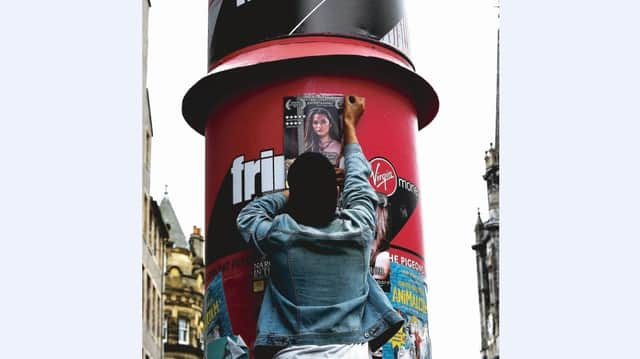'The Fringe’s theatre programme looks like a building reduced to rubble' - Andrew Eaton-Lewis


Theatre is in a state of emergency. This week the UK government announced further details of its £1.57 billion arts rescue package, and it wasn’t encouraging. Campaign group Freelancers Make Theatre Work described the announcement as "pitiful,” adding that “the realities of the situation for our world class freelance theatre workforce are now all too clear… we have just been pushed over the edge.”
Some of the language hailing the funding was already sounding alarm bells; talk of protecting “cherished institutions” or “the crown jewels” of British culture seemed to imply that while the buildings and salaries of the establishment would be protected, the kind of people who bring you, for example, Edinburgh Fringe shows could fall through the cracks.
It now looks worse than that – a lot more theatres may also fall through the cracks – but it is still the freelancers, the actors, writers, directors, producers, musicians, technicians, stage managers and others who make up over 70 per cent of people in the industry, who will suffer most. A survey last month suggested a quarter had been unable to access any emergency income and a third were considering leaving the industry. Since then a Theatre Artists Fund led by director Sam Mendes has raised over £1.6m, but this will only go so far. We are still in a critical, no-win position where freelancers can’t work and venues can’t host shows.
And it’s at this moment that this year’s Edinburgh Fringe is about to begin, sort of. In four days the Fringe website will begin hosting listings for anyone who wants to put on either an online or real world, socially distanced show. I was shown an unfinished version of the listings on Thursday and it was a shock to the system.
A version of this column went online earlier this week. It was more hopeful than this one. I’d noticed, among the 75th birthday tributes to Helen Mirren, an anecdote about the actor writing to the Guardian in 1974, arguing that the money national theatre companies spent on sets and costumes was “excessive, unnecessary and destructive to the art of theatre.” Mirren was responding to an article in praise of theatre director Peter Brook, with whom she was working at the time. Brook famously said he could “take any empty space and call it a bare stage.” While the story was obviously from a different time and culture, it resonated with my experience of the Fringe, where excessive expense is rarely an option but every empty space, from actual stages to pavements, taxis, cargo containers, lifts etc can become a stage via someone’s creative imagination and technical skill, the things that keep theatre alive.
This gave me an odd sort of hope. The Fringe is so often the place where theatre is reinvigorated, reinvented, reimagined. And some of that spirit has already been on show in recent months, as theatre-makers have brought their incredible resourcefulness to reinventing the form even in the midst of a pandemic. I’m thinking of some of the National Theatre of Scotland’s Scenes for Survival, and especially of Mark Lockyer, who turned his acclaimed 2016 solo show Living With The Lights On into a home-made film, shot on an iPhone. The result earned a five-star review in the Scotsman. It was a kind of blitz spirit, a defiant show of creativity in an impossible situation. I wondered if we might see lots more of it in August. Perhaps we still will. There are glimmers of it in the ZOO TV programme, and Grid Iron’s tentatively announced new show. At time of writing, though, the Fringe’s theatre programme looks like a building reduced to rubble.
A message from the Editor
Thank you for reading this story on our website. While I have your attention, I also have an important request to make of you.
With the coronavirus lockdown having a major impact on many of our advertisers - and consequently the revenue we receive - we are more reliant than ever on you taking out a digital subscription.
Subscribe to scotsman.com and enjoy unlimited access to Scottish news and information online and on our app. With a digital subscription, you can read more than 5 articles, see fewer ads, enjoy faster load times, and get access to exclusive newsletters and content. Visit https://www.scotsman.com/subscriptions now to sign up.
Joy Yates
Editorial Director